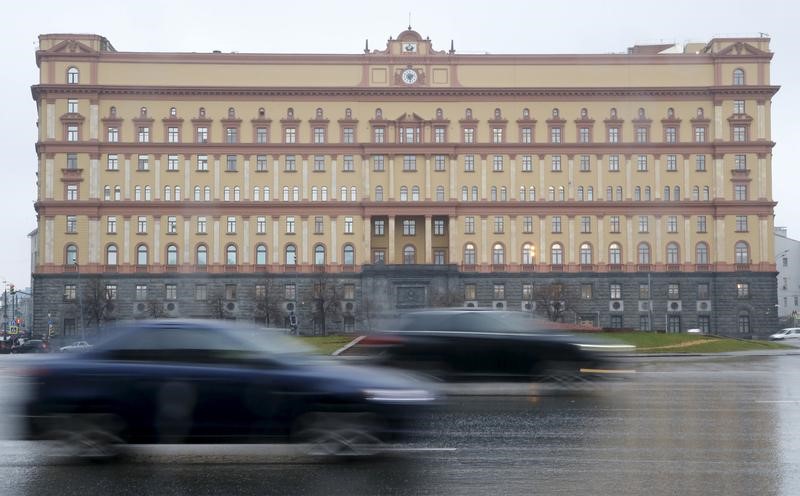
By Susan Heavey
WASHINGTON (Reuters) – President Donald Trump defended his firing of FBI Director James Comey on Wednesday, fighting a storm of criticism that the ouster was aimed at blunting an agency probe into his presidential campaign’s possible collusion with Russia to sway the 2016 election.
The Republican president’s abrupt move on Tuesday stunned Washington and was swiftly condemned by Democrats and by some in his own party.
In a series of posts on Twitter on Wednesday morning, Trump sought to explain his move, and lambasted his critics.
“Comey lost the confidence of almost everyone in Washington, Republican and Democrat alike. When things calm down, they will be thanking me,” he said.
The Trump administration said on Tuesday Comey’s firing was over his handling of an election-year FBI probe into then-Democratic presidential nominee Hillary Clinton’s use of a private email server during her time as secretary of state.
Though many Democrats have criticized Comey’s management of that investigation, they said they were troubled by the timing of his dismissal, given that Trump could have acted soon after taking office on Jan. 20 and that he has repeatedly criticized the FBI and congressional probes into alleged Russian involvement in the election.
Asked if Trump had fired Comey over his handling of the Russia investigation, White House spokeswoman Sarah Huckabee Sanders said no.
“Frankly, if that’s going to continue, it’s going to continue whether Jim Comey is there or not,” she told MSNBC in an interview.
Some Democrats compared the move to the “Saturday Night Massacre” of 1973, in which President Richard Nixon ordered the firing of an independent special prosecutor investigating the Watergate scandal that eventually led Nixon to resign.
Democrats amplified their calls on Wednesday for an independent investigation into Moscow’s role in the 2016 election.
‘CONSTITUTIONAL CRISIS’
“What we have now is really a looming constitutional crisis that is deadly serious,” Democratic Senator Richard Blumenthal told CNN.
In one tweet on Wednesday, Trump referred to previous Democratic criticism of Comey over the Clinton probe. “The Democrats have said some of the worst things about James Comey, including the fact that he should be fired, but now they play so sad!” he said.
The president also personally attacked Blumenthal, referring to him as “Richie,” calling his comments on the Comey firing “a joke” and alluding to a years-old controversy over the senator’s military service during the Vietnam War era.
Some Republicans have also said they were troubled by the timing of Comey’s firing, including Senator Richard Burr, the Republican chairman of the Senate Intelligence Committee. That is one of several congressional panels investigating Russian interference during the election and possible collusion by Trump campaign staff.
U.S. intelligence agencies concluded in a January report that Russian President Vladimir Putin had ordered an effort to disrupt the 2016 election that included hacking into Democratic Party emails and leaking them, with the aim of helping Trump.
Russia has repeatedly denied any such meddling and the Trump administration denies allegations of collusion with Russia.
LAVROV VISIT
Russian Foreign Minister Sergei Lavrov is visiting Washington this week for high-level meetings, including one with Trump at the White House later on Wednesday in what will be the highest-level contact between Trump and the Russian government since he became president.
The two were scheduled to meet at 10:30 a.m. ET (1430 GMT), the White House said.
Asked by reporters at the U.S. State Department before a meeting with Secretary of State Rex Tillerson if Comey’s firing would cast a shadow over the talks, Lavrov responded in a sarcastic tone: “Was he fired? You’re kidding. You’re kidding.”
The Kremlin said it hoped Comey’s firing would not affect Moscow’s ties with Washington, saying it believed his dismissal had nothing to do with Russia.
Legal experts said Trump’s dismissal of Comey does not mean the FBI’s Russia investigation will be disrupted or end, since career FBI staffers can continue the probe even as the search for a new director begins.
CNN reported on Tuesday night that federal prosecutors had issued grand jury subpoenas to former Trump national security adviser Michael Flynn, seeking business records, as part of the probe into Russian interference in the election.
Comey’s deputy, Andrew McCabe, took over as acting FBI director while the White House searches for a new permanent director.
“James Comey will be replaced by someone who will do a far better job, bringing back the spirit and prestige of the FBI,” Trump tweeted.
(Reporting by Susan Heavey, David Alexander, Arshad Mohammed; Writing by Will Dunham and Susan Heavey; Editing by Frances Kerry)






